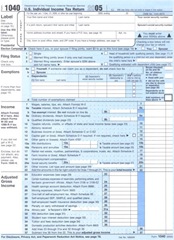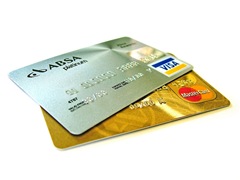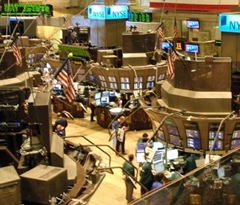I still don’t get the debit card thing. But according to the WSJ, there is a new trend I do understand: establishments accepting cards but not cash.
Slips of paper and metal disks are an inefficient and archaic form of money.  You have to go to an ATM to get some, and often pay a fee. To use it, you have to wait for the clerk to make change. You have to carry it around. And then there is the growing pile of coins most of us have at home.
You have to go to an ATM to get some, and often pay a fee. To use it, you have to wait for the clerk to make change. You have to carry it around. And then there is the growing pile of coins most of us have at home.
And don’t get me started on parking meters. Offering me a nice parking space for half an hour in exchange for a quarter, and only in exchange for a quarter, is more scavenger hunt than transaction.
Plastic pushing out paper has been a long brewing trend. I can remember when grocery stores didn’t take cards. I still feel a little funny charging things there. Today we take for granted that we can use plastic just about anywhere, even in places, like taxicabs, that a generation ago would have seemed implausible as potential users of cards.
Read more »
The Wall Street Journal has been running a series modestly entitled "The New Rules of Personal Finance". The most recent installment is on what to do differently now that you know that taxes will be going up.
As readers of this blog know, I’m not all that convinced taxes are on the way up anytime soon. Yes, the deficit and debt are heart-poundingly frighteningly large. And yes, any reasonable observer can see that something has to be done. That doesn’t mean it will be.
I am sure that the Administration and its supporters would, if they had their druthers, raise taxes significantly to get the deficit under control. But I am also sure they are aware enough to see that they just don’t have the political capital right now. And when would they? Next year, during the mid-term election season? In 2011 and 2012, when Obama will be facing what is looking like a tough reelection?
Read more »
I have a debit card. I think. It’s the ATM card my bank gave me. It’s got the MasterCard symbol on it, so I think that means I can use it to buy stuff. Of course, this is just a theory. In the ten years it’s been in my wallet I’ve never thought to test it out. Why would I?
 I am going to admit right here that I am pretty obviously missing something when it comes to debit cards. Debit card transactions now outnumber credit card transactions. This mystifies me. I can think of only three reasons to carry a debit card rather than a credit card.
I am going to admit right here that I am pretty obviously missing something when it comes to debit cards. Debit card transactions now outnumber credit card transactions. This mystifies me. I can think of only three reasons to carry a debit card rather than a credit card.
1) You are considered a poor credit risk and cannot get a credit card.
2) You can get a credit card but will not because of ethical or religious objections.
3) You find it too difficult to overcome the temptation to borrow more than you should if you carry a credit card, so carry a debit card that will limit your spending to cash you actually have.
Read more »
It’s not exactly grabbing headlines, but our nation’s regulatory watchdogs are on the scent of yet another scourge from which investors need to be protected: leveraged ETFs. Apparently, these things are like snakes in the grass, just waiting to spring at poor innocents who wander by.
Several brokerages have taken steps to discourage their clients from buying leveraged ETFs and in some cases prohibit it altogether. The folks at Motley Fool have been waving people off them. The association of state securities regulators named leveraged ETFs as one of their Top 10 Investor Traps, along with Ponzi schemes and currency and gold bullion scams.
leveraged ETFs and in some cases prohibit it altogether. The folks at Motley Fool have been waving people off them. The association of state securities regulators named leveraged ETFs as one of their Top 10 Investor Traps, along with Ponzi schemes and currency and gold bullion scams.
And just last week, FINRA, the financial industry’s self-regulation body, announced changes to the margin requirements for buying leveraged ETFs that go a long way towards destroying their usefulness. A FINRA spokesman called leveraged ETFs ”very complicated, with a high element of risk."
Read more »
A few days ago there was an encouraging little post on The Wallet about how we’re spending more on life’s smaller luxuries in the face of the Great Recession. I call it encouraging because I think it is the direction most people should go in their spending, more on the small stuff, less on the big things,  and I like reading positive articles about how consumers are doing this. Not that I really think this is going on.
and I like reading positive articles about how consumers are doing this. Not that I really think this is going on.
My theory, admittedly not based on much science, is that we’re happier if we spend more on the smaller things we like than on the big things. A great big house may indeed add joy to our lives, but not as much as the equivalent in nights out on the town. (Or rounds of golf, or manicures or whatever floats your boat.)
Read more »
 You have to go to an ATM to get some, and often pay a fee. To use it, you have to wait for the clerk to make change. You have to carry it around. And then there is the growing pile of coins most of us have at home.
You have to go to an ATM to get some, and often pay a fee. To use it, you have to wait for the clerk to make change. You have to carry it around. And then there is the growing pile of coins most of us have at home.

 leveraged ETFs
leveraged ETFs